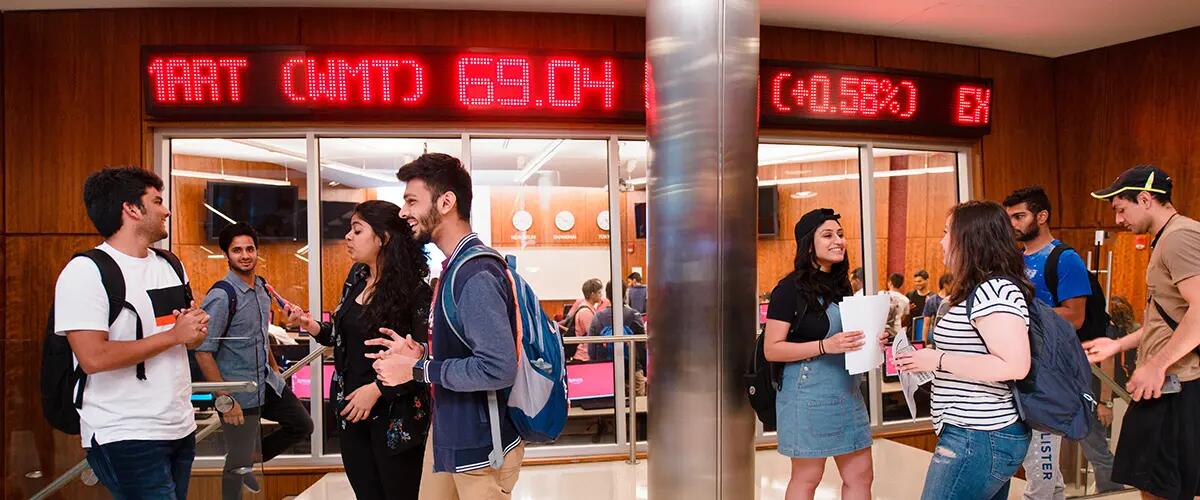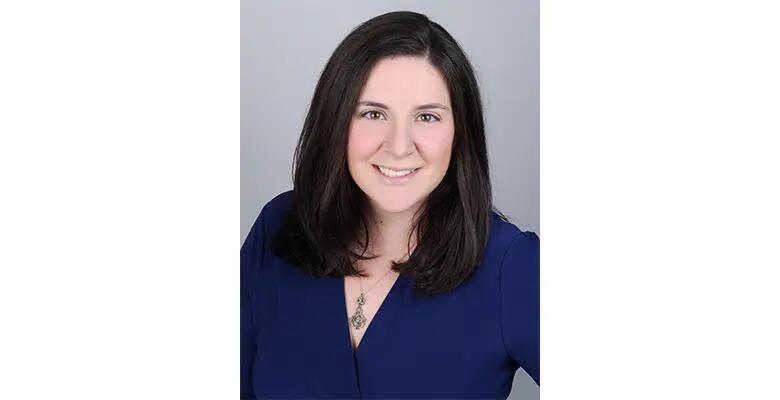
Strong return-on-investment differentiates Rutgers MBA program
When considering earning an MBA, a few priorities tend to stick out. Cost, career opportunities, flexibility, and educational value are all obvious sticking points. However, another crucial feature should matter more when it comes time to decide where you’ll go: return on investment.
The Rutgers Business School in New Brunswick and Newark, New Jersey, isn’t just the premiere MBA option in the Garden State (ranked 44th overall by U.S. News & World Report): it’s among the best return on investment opportunities you can find anywhere.
According to the Financial Times, which also ranks RBS among the best business schools in the world, the average salary jump for MBA grads is a staggering 112 percent. This return on investment figure bests some of the most recognizable programs in the world, including Dartmouth’s Tuck School of Business, the London Business School, and New York University’s Stern School of Business.
Part of the reason for such a pronounced ROI is, of course, the school’s ideal proximity to the New York City metro, offering students extensive opportunity advantages that other prestigious institutions struggle to compare to. Other provincial factors in the eye-popping ROI are the lauded areas of focus, including supply chain management (ranked 6th best in the country by U.S. News & World Report). When factored together, it may not be surprising to find a lot of diverse backgrounds studying at Rutgers Business School.
When talking with several current students, the litany of non-traditional students tends to stand out, including a radio DJ tired of an exhaustive industry, a theater vet, a former fifth grade music teacher looking to break out in an entirely new field, and more. Read on to see their stories and what the future may hold for life after an MBA.

Laurie Cataldo Godfrey, Rutgers Business School MBA
Age: 33
Hometown: Marlboro, NJ
Undergraduate Institution and Major: Penn State University, Journalism and Sociology
Pre-MBA Work Experience: I spent about 10 years as a radio DJ and content creator at the Jersey Shore.
Why business school? Why now? I was feeling frustrated with radio and felt I wasn’t living up to my full potential. Marketing seemed like it would be a good fit for me, and I knew if I wanted to secure a great marketing job I would need direct experience and a business degree. I was worried that it was too late to start a new career, but one of my favorite sayings is, “you’re never too old, and it’s never too late!”
Why the Rutgers Business School MBA program? What factors figured most prominently into your decision of where to attend? My husband works in Lower Manhattan and all of my family is in New Jersey so I really wanted to stay local. Out of the schools in range, Rutgers Business School offered an unbeatable return-on-investment. The job placement rate was also incredibly important to me, and Rutgers had impressive stats in that department.
What do you think is your most valuable or differentiating contribution to your MBA class? My work experience with communications and public speaking certainly set me apart. I think my unique career background showed others in my class that regardless of where you are coming from, drive and hard work are what you need to succeed in business school and beyond.
Fun fact that didn’t get included on your application? I originally went to Penn State to study meteorology, because I wanted to be a TV weather reporter.
Post-MBA career interests? Upon graduation, I will begin my marketing career as an Associate Brand Manager for Mars Wrigley Confectionery in New Jersey.

Shamama Siddiqui, Rutgers Business School MBA
Age: 27
Hometown: North Brunswick, NJ
Undergraduate Institution and Major: Rutgers University, double major in public policy and political science at Rutgers University
Pre-MBA Work Experience: For the past three and a half years, I worked as a project manager at a policy research firm. Most of my projects consisted of global health projects in developing countries.
Why business school? Why now? I was at a point in my career where I felt the need to take out time to gain new skills, especially managerial skills, which is what led me to business school.
Why the Rutgers Business School MBA program? What factors figured most prominently into your decision of where to attend? Besides the small class size, the ROI, and affordable tuition, one of the things that really drew me to the Rutgers MBA program was its diverse student body and faculty. Rutgers is one of the most diverse schools in the nation, and I knew this was going to add to both my personal and professional growth.
What do you think is your most valuable or differentiating contribution to your MBA class? Having managed various projects in developing countries, I’ve learned how to efficiently manage teams in a global environment.
Fun fact that didn’t get included on your application? Toward the end of my undergraduate years, I traveled to remote Himalayan villages to conduct interviews with farmers for a project I was working on. It was one of my greatest experiences and pushed me toward working in international development.
Post-MBA career interests? In the short-term, I want to work in a supply chain role at a healthcare company. In the longer run, I want to work in a management position at a large, international non-profit.

Jon Mulhearn, Rutgers Business School MBA
Age: 30
Hometown: Lansdale, Pennsylvania
Undergraduate Institution and Major: DeSales University, B.A. in theater
Pre-MBA Work Experience: Regional and Off-Broadway theater, independent films, commercials as well as work as a company member of a theater in NYC, and various jobs to pay the bills.
Why business school? Why now? I chose business school because I’ve always been extremely interested in the financial markets and figuring out how to make money work. I realized throughout my career as an actor that I kept getting drawn to reading about economics and watching documentaries about financial meltdowns. After many conversations with family and friends, I recognized that pursuing that passion would be fulfilling. Business school was the missing piece of the puzzle for me. It has developed my financial acumen and further developed my passion for strategic thinking, and I’ve already been able to apply what I’ve learned at Rutgers Business School to real-world situations. To me, it was a now or never decision to attend business school, as I knew it would be a tough transition to make with the competition going into and coming out of top-tier schools.
Why the Rutgers Business School MBA program? What factors figured most prominently into your decision of where to attend? I talked to a lot of people regarding school choices, and Rutgers was consistently acknowledged as a powerhouse. I’ve seen the caliber of students coming out of the program and was impressed when I saw where the students were ending up upon graduation. The factors that figured most prominently into my decision were location, reputation, and network. I wanted to be in the NYC area and to attend a school that had a solid footprint in the city with a great reputation for putting out top talent.
What do you think is your most valuable or differentiating contribution to your MBA class? Since I’m coming from such a different background and had my work cut out for me from day one, I feel my best contribution to my class is helping empower others. I’m living proof that if you follow your passion, you can’t go wrong.
Fun fact that didn’t get included on your application? I have a commercial that runs every holiday season in Pennsylvania and is slated to run for the next decade. So despite leaving the industry, I’ll have something to look back on for a while.
Post-MBA career interests? I’m very interested in pursuing corporate finance and transitioning to a role in investing. I’m extremely fortunate to have received an offer from Prudential Financial to round out a new team that has been formed that should bring some very exciting changes across the business. Ideally in the future, finding a role within Prudential Global Investment Management would be a dream come true, but right now my sights are focused on excelling within my current role, and taking on the challenges as they come.

Spencer Greenberg, Rutgers Business School MBA
Age: 25
Hometown: Rockaway, NJ
Undergraduate Institution and Major: Rutgers University, Mason Gross School of the Arts, music education
Pre-MBA Work Experience: Music teacher, kindergarten through fifth grade
Why business school? Why now? As I continued teaching, I found that it was not a career I could see myself doing for 30 years, however, when I applied to entry-level jobs in business due to my interest in math and the stock market, I found that I had a difficult time getting interviews because of my undergraduate concentration in music and my lack of business work experience.
Why the Rutgers Business School MBA program? What factors figured most prominently into your decision of where to attend? I chose Rutgers Business School for two reasons: the strength of network/ job opportunities and cost. Out of the schools I applied to, Rutgers was much greater value for what I was spending.
What do you think is your most valuable or differentiating contribution to your MBA class? I hope that my classmates can see me as a hard worker and someone they can rely on. When pursuing your MBA, everyone in your class is smart and hard working. The things that differentiate you are your ability to be counted on when an assignment, project, or relationship is at stake and if you can deliver a quality product in your work.
Fun fact that didn’t get included on your application? I am a huge baseball fan. The lessons of failure, constant improvements and adjustments, and always learning from those around you are lessons that I try to keep in mind all the time. In baseball, you can fail seven out of 10 times and still be considered a success. To most industries that would be a failure, but knowing how to deal with failure and turn it into success is one of the most important lessons I have learned.
Post-MBA career interests? I recently accepted a position at M&T Bank in Buffalo, N.Y. in their executive associate program.
This article originally appeared on MetroMBA.com. It was written by Matthew Korman.
Press: For all media inquiries see our Media Kit


